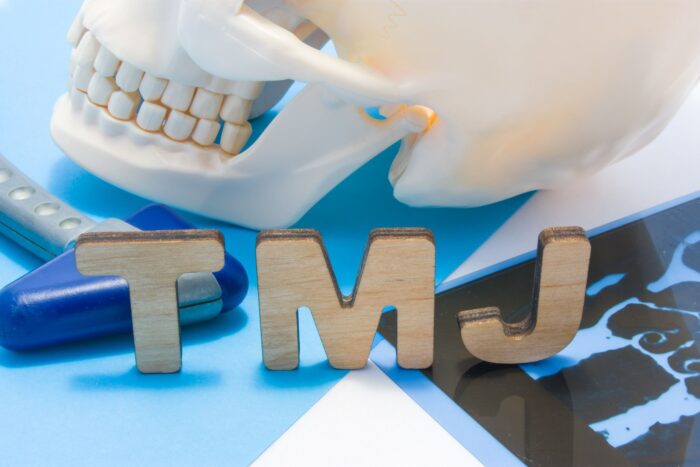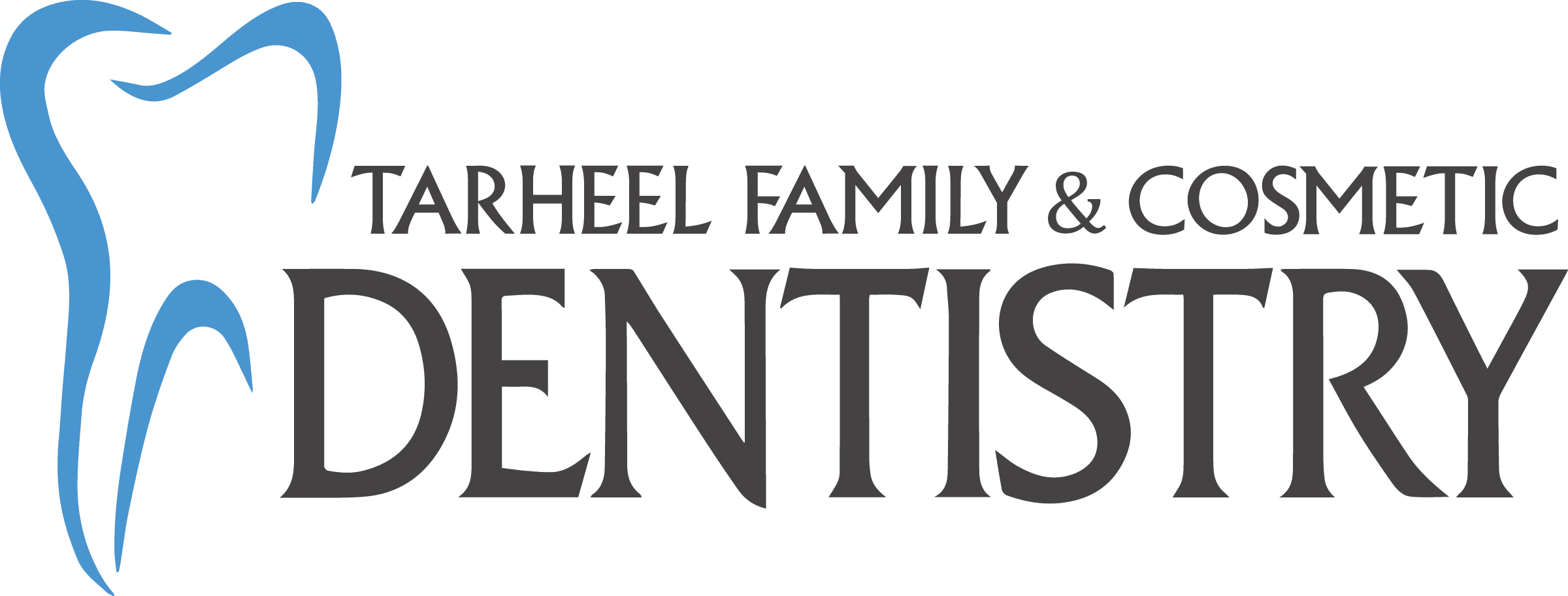Many of us carry around stress in our bodies. Over time, it can cause physical pain. Some people feel tension in their shoulders or necks. Other people may feel pain or discomfort in their jaws. Your jaw joint, or temporomandibular joint (TMJ), allows your jaw to move. Eventually, tension can lead to discomfort and pain. Without treatment, this pain can become debilitating for many.

Common Causes for TMJ Pain
There are several ways that you can develop pain in your jaw or jaw joint. If you know why you have pain, you can talk to your dentist for treatment.
You may not even be aware of one reason for jaw pain. Bruxism is a condition when you grind your teeth or clench your jaw. For most people, this happens while they are asleep. As a result, you may not know you are doing it. You may wake with a sore jaw or a headache. Grinding your teeth places extra pressure on the jaw joint. This can lead to pain and inflammation.
If you have crooked teeth or a misaligned jaw, you can develop TMJ pain. This is because an improper bite can strain the TMJ. Therefore, you may feel pain or discomfort.
Another cause of TMJ pain is emotional or physical stress. When stressed, many people clench their jaws. They may hold tension in their jaws, necks, and shoulders. Tension in the muscles can move into other areas over time.
Finally, conditions that affect the health of the joint can cause pain. For example, arthritis can cause inflammation within the joint. It can also create inflammation. This can lead to pain and limited jaw movement.
What are the Symptoms of TMJ
There are several ways that you may notice TMJ pain. One of the symptoms is pain or tenderness in the jaw. If you have persistent pain in the jaw area, you should talk to your dentist. This pain can eventually make it difficult to chew or speak.
Constant pain or tension in the jaw can cause other problems. For example, people with TMJ pain report headaches or earaches. The jaw muscles connect to other areas of the face. As a result, you can experience headaches or earaches because of your jaw pain.
Some people may not feel pain from TMJ. However, they may notice popping or clicking sounds when they open or close their mouths. Unfortunately, this can lead to worse symptoms over time.
Relief from TMJ Pain
Fortunately, there are several methods to relieve TMJ pain. With the help of your dentist, you can manage the condition.
While you should talk to your dentist about your options, there are some things you can do at home to reduce your pain. For example, you can use heat or ice therapy. Alternating between hot and cold can help reduce inflammation and pain. To further lower pain, you can try pain relievers, such as ibuprofen, to provide temporary relief.
You can also try jaw exercises or techniques to reduce stress. Gentle jaw exercises can help remove tension from your jaw. Also, relaxation techniques, such as medication, can help relax the jaw muscles and reduce pain.
Finally, your dentist can provide some relief options. For example, bite guards can cushion your teeth as you sleep. This reduces the strain on your jaw and your teeth. It can also properly align your jaw.
